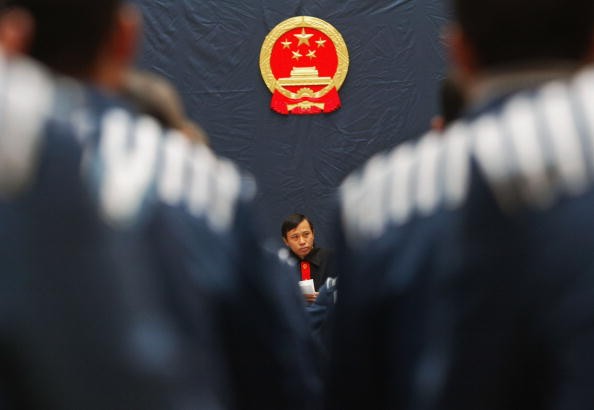Following an unprecedented rise in foreign legal disputes, China is expected to see that number continue to increase through the 13th Five-Year Plan (2016-20) period, one of the nation’s top judges told China Daily.
Driving the rise in disputes will be Beijing's recent maritime expansions and its campaign to upgrade trade and cooperation agreements with its neighbors along the ancient land and maritime routes of the Silk Road, Zhang Yongjian, a Supreme People's Court (SPC) judge, said in an interview with China Daily published on Wednesday.
Zhang, who presides as chief judge of the SPC's No. 4 Civil Tribunal, a court that specializes in overseas commercial and maritime trials, said that there is no end in sight for litigation involving foreigners.
According to data provided by the SPC, from 2013 to 2015, courts across mainland China handled around 100,000 civil, commercial and maritime lawsuits involving foreign litigants--a 10.4-percent increase from the previous three-year period. Approximately 50,000 of those cases were filed by parties from Hong Kong, Macau and Taiwan.
The remaining disputes involved companies and individuals of various nationalities, including those of the United States, the United Kingdom and Germany, as well as in Southeast Asia and Africa, said Shen Hongyu, senior judge from the top court's No. 4 Civil Tribunal.
Many of the disputes center around low-cost, labor-intensive manufacturing companies, Shen added, while maritime disputes make up 15 percent of the lawsuits.
One immediate cause of foreigner-related legal disputes is that, nearly 30 years after the first foreign investment companies were established in China, many are seeing their founding contracts expire, Zhang said. And as a result, disputes occur regarding the dissolution or continuation of the companies.
Zhang noted that many of the companies have failed to keep up with rapid changes in technology and market trends, while some have seen their local partners fail to meet the terms that were mutually agreed upon with foreign investors.
In response to the rising volume of cases, Chinese judges have started to study foreign laws and have implemented strategies to improve work efficiency, he added.
Government data show that, in 2014, China had approximately $112 billion in foreign direct investment and $80 billion in outbound direct investment.
However, according to Wang Zhengzhi, a senior partner from the Beijing Global Law firm, China still lags behind in handling transnational lawsuits.
China also needs to raise the capability of its judges with professional training programs, he added.
Zhang said that, starting this year, the SPC will issue its judicial opinion on maritime disputes and guidelines for transnational commercial disputes.



























